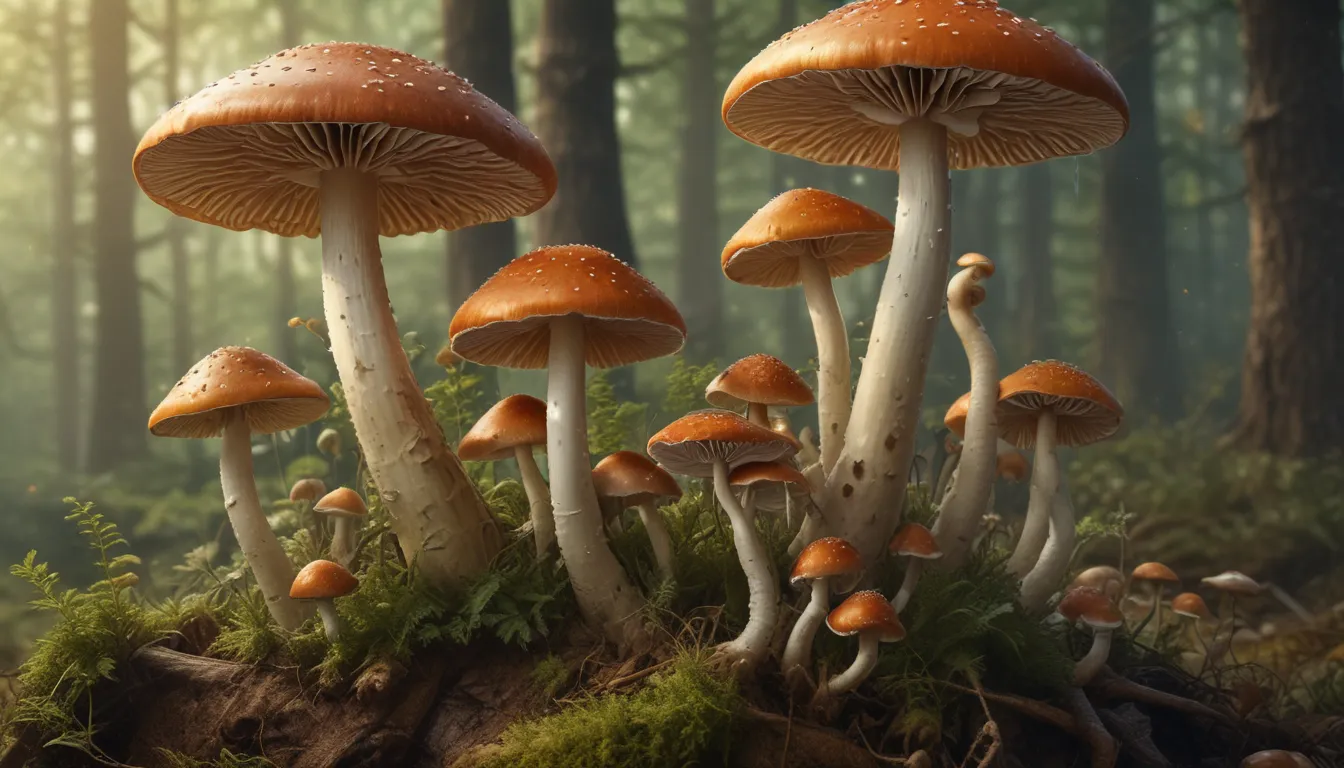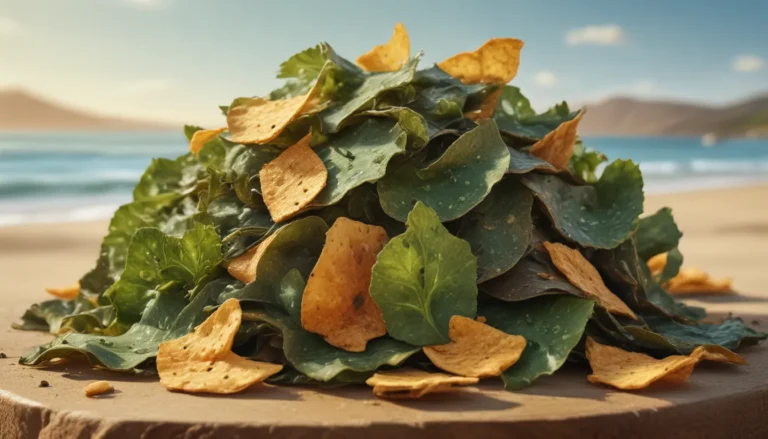The pictures in our articles might not always show exactly what the text is talking about. We use these images to make the article more interesting and eye-catching. They are there to add to the text, but not to replace it or show every detail.
Mushrooms, those earthy fungi that have intrigued and delighted culinary enthusiasts for centuries, hold a realm of secrets waiting to be discovered. From their unique flavors to their medicinal properties, mushrooms are truly versatile organisms that have captivated our imaginations for ages. Dive into this article to uncover 20 intriguing facts about mushrooms that will leave you in awe. Whether you're a food lover, health-conscious individual, or nature enthusiast, these facts will deepen your appreciation for these remarkable fungi.
Unveiling the Mysteries of Mushrooms
-
Not Plants, but Fungi: Contrary to popular belief, mushrooms are not classified as plants but belong to the fascinating kingdom of fungi, distinct from both plants and animals.
-
Diverse Shapes and Sizes: From tiny button mushrooms to large portobellos that can grow as big as an umbrella, mushrooms come in a wide array of shapes and sizes.
-
Medicinal Marvels: Mushrooms have been valued for their medicinal properties in traditional practices like Chinese and Ayurvedic medicine, offering immune-boosting and antioxidant effects.
-
Abundant Diversity: With over 10,000 species worldwide, mushrooms offer a staggering variety, each with its own unique characteristics and properties.
Exploring the Nutritional Benefits of Mushrooms
-
Nutrient-Rich: Low in calories and fat, mushrooms are a healthy addition to any diet, packed with essential nutrients like vitamins (such as vitamin D and B vitamins), minerals, and fiber.
-
Caution Required: While many mushrooms are safe and nutritious, some species can be toxic or deadly, emphasizing the importance of proper identification or expert consultation.
-
Cultivated Delights: Advancements in cultivation techniques have made it possible to grow mushrooms commercially, ensuring a reliable and controlled supply for consumption.
-
Environmental Guardians: Playing a vital role in the ecosystem, mushrooms aid in decomposing organic matter and forming symbiotic relationships with plants for nutrient absorption.
Delving Into the Culinary and Cultural Delights of Mushrooms
-
Unique Flavor Profiles: Each type of mushroom boasts a distinct taste, from earthy and savory to nutty or slightly sweet, adding depth and complexity to culinary creations.
-
Historical Folklore: Embedded in traditional tales and beliefs across cultures, mushrooms have been associated with magic, luck, fortune, and otherworldly realms.
-
Endless Culinary Possibilities: Whether sautéed, roasted, grilled, or incorporated into various dishes, mushrooms offer unparalleled versatility in the kitchen.
Unveiling the Unique Qualities of Mushrooms
-
Psychedelic Properties: Certain mushrooms contain psychoactive compounds that can induce hallucinations and altered states of consciousness when ingested.
-
Natural Dyes: The pigments in mushrooms have been used for centuries to dye fabrics and create natural dyes for artistic purposes.
-
Bioremediation Protectors: Certain mushroom species aid in bioremediation, breaking down pollutants in the environment for sustainable cleanup.
-
Medicinal Traditions: Mushrooms like reishi have been used in traditional medicine to support respiratory health and alleviate respiratory conditions.
Embracing the Mystique of Mushrooms
-
Microscopic Marvels: Mushroom spores, the reproductive cells, are incredibly small and play a vital role in reproduction and dispersal.
-
Wild Foraging: Foraging for wild mushrooms can be a thrilling adventure, but proper knowledge and identification skills are essential for safety.
-
Water-Rich Nature: Composed mostly of water, mushrooms boast a unique texture and juiciness when cooked, absorbing flavors from other ingredients.
-
Delicacy Status: Highly prized mushrooms like truffles and morels are revered in culinary circles for their distinct aroma and flavor.
The Enchanting World of Mushrooms
Mushrooms, with their captivating diversity and intriguing properties, continue to amaze and inspire us. From culinary delights to environmental significance, these fungi offer a world of wonder waiting to be explored. Dive into the enchanting realm of mushrooms, from their cultural significance to their culinary versatility, and discover the magic that these humble fungi bring to our lives.
FAQs
Q: Are mushrooms a vegetable?
A: Although mushrooms are often considered vegetables, they are actually fungi and belong to a distinct biological kingdom.
Q: Are all mushrooms safe to eat?
A: No, not all mushrooms are safe to eat. Some wild mushrooms can be poisonous, emphasizing the importance of proper identification.
Q: Can mushrooms be cooked in various ways?
A: Yes, mushrooms are incredibly versatile and can be cooked in a variety of ways, enhancing dishes with their unique flavors and textures.
Q: Are mushrooms a good source of nutrients?
A: Yes, mushrooms are rich in essential nutrients, low in calories and fat, making them a healthy addition to any diet.
Q: Can mushrooms be grown at home?
A: Yes, mushrooms can be grown at home using mushroom kits or by creating a conducive environment for their growth, offering a fun and rewarding experience for enthusiasts.
Mushrooms, with their rich history and diverse qualities, invite us to delve into a world of culinary delights, medicinal wonders, and environmental significance. Embrace the enchanting allure of these fascinating fungi and let their magic captivate your senses. Whether you savor a delectable mushroom dish or embark on a foraging adventure, mushrooms continue to surprise and delight us with their timeless appeal. Explore the wonders of mushrooms and embrace the extraordinary journey these remarkable organisms offer.






